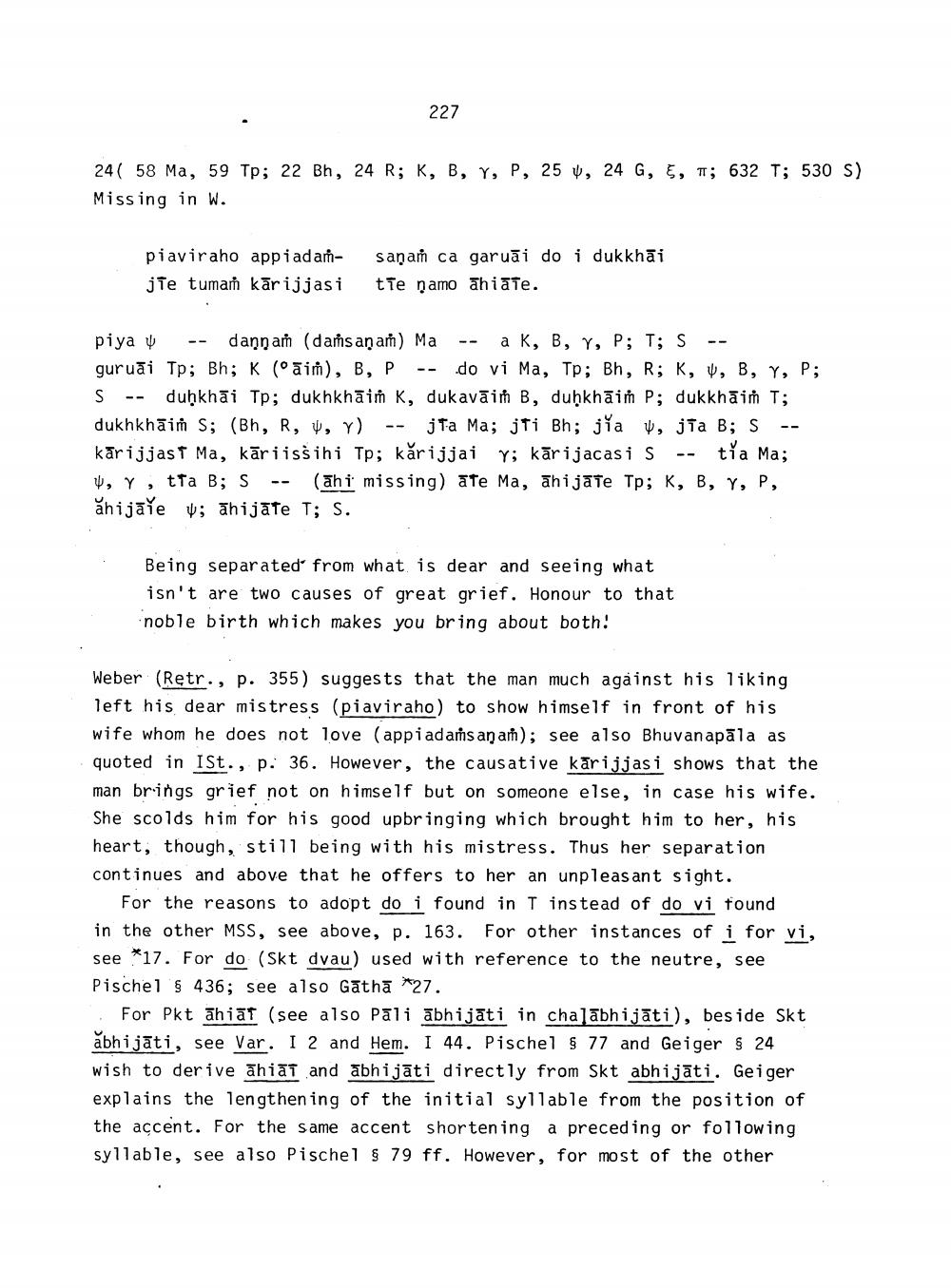________________
227
24 58 Ma, 59 Tp; 22 Bh, 24 R; K, B, Y, P, 25, 24 G, E, π; 632 T; 530 S) Missing in W.
piaviraho appiadamJTe tuman karijjasi tie namo ahiāte.
sapa ca garusi do i dukkhai
a K, B, Y, P; T; S
piya dannah (dasanah) Ma gurusi Tp; Bh; K (im), B, P do vi Ma, Tp; Bh, R; K, W, B, Y, P; S -- duḥkhāi Tp; dukhkhaim K, dukavāim B, duḥkhaim P; dukkhaim T; dukhkhaim S; (Bh, R, V, Y) jTa Ma; jTi Bh; ja w, jTa B; S kārijjast Ma, kariisšihi Tp; kǎrijjai y; kārijacasi S tia Ma; V, Y, tTa B; S (ahi missing) aTe Ma, ahijaтe Tp; K, B, Y, P, ǎhija e ; ahijāte T; S.
--
Being separated from what is dear and seeing what isn't are two causes of great grief. Honour to that noble birth which makes you bring about both!
--
--
Weber (Retr., p. 355) suggests that the man much against his liking. left his dear mistress (piaviraho) to show himself in front of his wife whom he does not love (appiadams an am); see also Bhuvanapala as quoted in ISt., p. 36. However, the causative karijjasi shows that the man brings grief not on himself but on someone else, in case his wife. She scolds him for his good upbringing which brought him to her, his heart, though, still being with his mistress. Thus her separation continues and above that he offers to her an unpleasant sight.
For the reasons to adopt do i found in T instead of do vi found in the other MSS, see above, p. 163. For other instances of i for vi, see *17. For do (Skt dvau) used with reference to the neutre, see Pischel § 436; see also Gathā *27.
For Pkt Shit (see also Pali abhijati in chalabhijati), beside Skt abhijāti, see Var. I 2 and Hem. I 44. Pischel § 77 and Geiger § 24 wish to derive ThiaT and abhijati directly from Skt abhijati. Geiger explains the lengthening of the initial syllable from the position of the accent. For the same accent shortening a preceding or following syllable, see also Pischel § 79 ff. However, for most of the other




